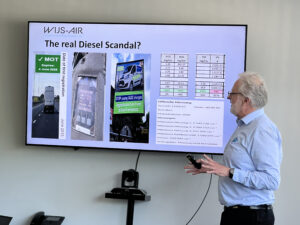A record decline in air pollution emitted by traffic and the transport industry last year spared 3,600 lives and 5,600 new cases of childhood asthma in the UK, alongside 38,000 deaths in Europe, according to a recent study.
The Covid-19 circumstances and lockdown measures implemented in March 2020, combined with increased used of renewable energy, caused a steep drop in fossil fuel burning in Europe over last year.
There was approximately a 14 per cent reduction in the average level of nitrogen dioxide, 7 per cent reduction in average level of particulate matter pollution, and 4 per cent in ozone levels, resulting in an estimated 37,817 deaths from air pollution in Europe, according to an analysis by the Centre for Research on Energy and Clean Air (CREA).
Other avoided health impacts include 10.0 million fewer days of work absence, 17,000 fewer new cases of asthma in children, 29,000 avoided emergency room visits due to asthma attacks and 4,700 fewer preterm births.
Renewable energy overtook fossil fuels as an energy sources, a record in the history of power generation. Coal consumption for power generation fell by 20% in 2020 compared with 2019 and oil demand for transportation fell by 13% in January-November 2020. Coal and oil burning are the main sources of NO2 pollution and key sources of particulate matter pollution across Europe.
The United Kingdom is among the European countries with the largest reductions in NO2 pollution levels, alongside France, Spain, and Sweden. The UK has one of the largest projected long term health impacts.
Air pollution is the largest environmental health threat in Europe, with the average life expectancy in the European Union shortened by an estimated eight months due to pollution exposure. Join the Westminster Commission for Road Air Quality to defend our inalienable right to breathe clean air, by emailing [email protected].




